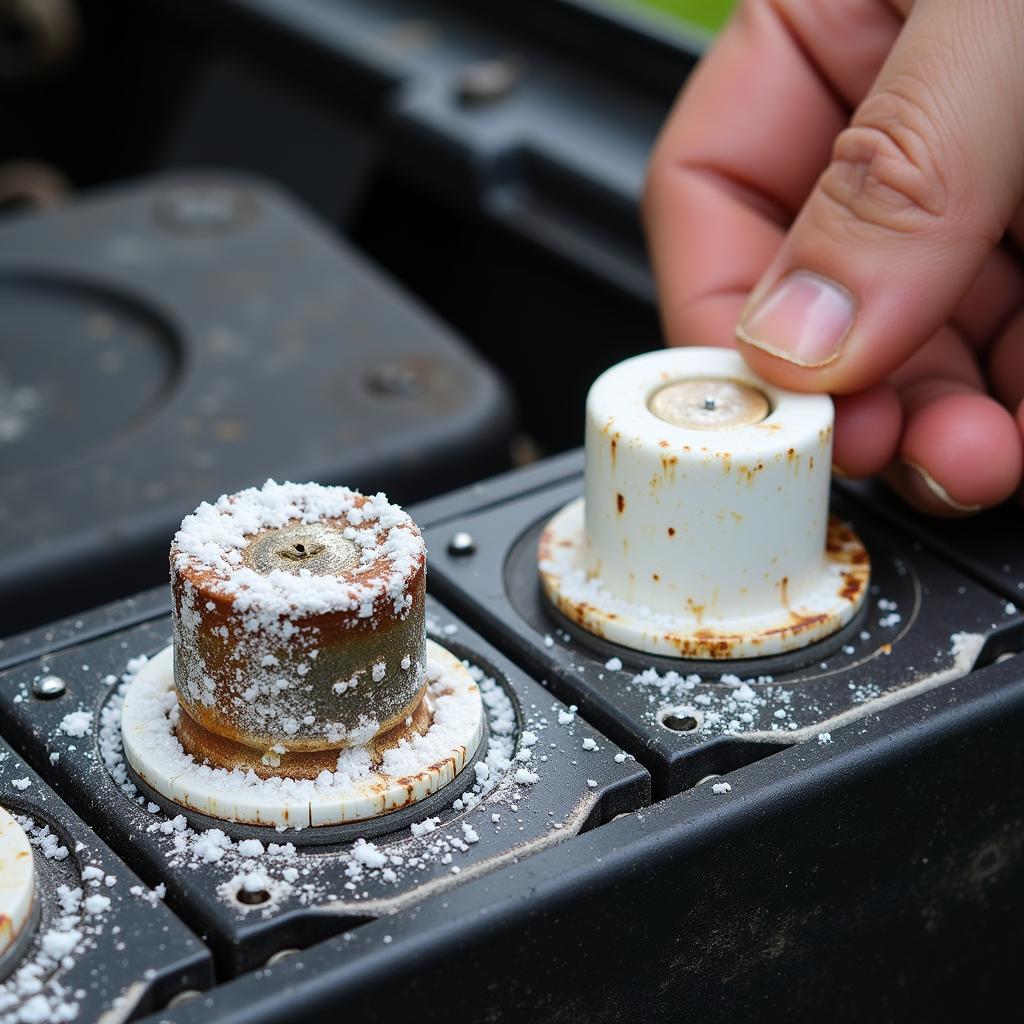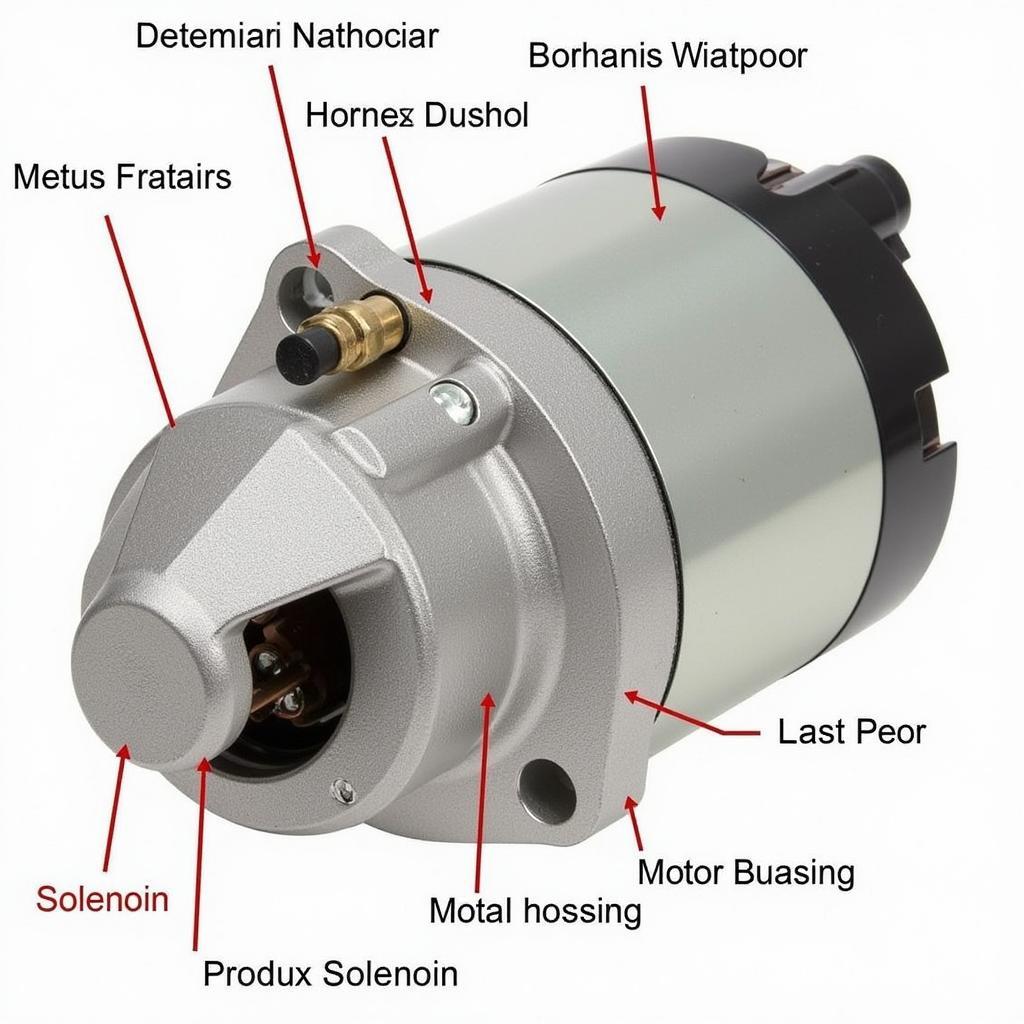You changed your car battery, expecting a roar of life, but instead, you’re met with silence. “Changed battery but car still wont start” is a frustrating situation, but don’t despair. This guide delves into the common reasons why your car might refuse to start even with a new battery and provides solutions to get you back on the road.
Beyond the Battery: Why Your Car Might Still Be Dead
While a dead battery is the most common culprit for a non-starting car, replacing it doesn’t always guarantee a fix. Several other components can mimic a dead battery problem, leaving you stranded even with a brand new power source. These issues range from simple fixes to more complex electrical problems.
Checking the Obvious: Connections and Corrosion
Before diving into more complicated diagnostics, ensure your new battery is correctly installed. A loose connection can prevent power from flowing to the starter. Check both positive and negative terminals for secure connections and any signs of corrosion. Corrosion can disrupt the electrical flow, even if the connection seems tight. Clean any corrosion with a wire brush and baking soda solution.
 Corroded Car Battery Terminals
Corroded Car Battery Terminals
Beyond the Terminals: Cables and Clamps
Sometimes, the problem isn’t the terminals themselves but the cables and clamps connecting them to the battery. Damaged or corroded cables can restrict the current flow, mimicking a dead battery. Inspect the cables for any fraying, cracks, or breaks. Similarly, check the clamps for corrosion or damage. If necessary, replace the cables and clamps to ensure a strong connection.
Delving Deeper: The Starter Motor
A faulty starter motor can also prevent your car from starting, even with a new battery. The starter motor is responsible for cranking the engine, and if it’s malfunctioning, the engine won’t turn over. You might hear a clicking sound when you turn the key, indicating a starter problem. Testing the starter motor can be done using a multimeter or by a professional mechanic.
 Car Starter Motor
Car Starter Motor
“A common misconception is that a new battery always solves starting issues. Often, it’s the starter or the related wiring that’s the real problem,” says John Miller, Lead Automotive Electrical Engineer at Advanced Auto Solutions.
Exploring the Electrical System: Alternator and Fuses
A failing alternator can drain a new battery quickly, leading to starting problems. The alternator recharges the battery while the engine is running. If it’s not functioning correctly, your new battery might be discharged after just a short drive. You can find more about alternator and battery problems by checking out signs of a bad alternator vs bad battery. Also, a blown fuse related to the starting system can prevent the car from starting. Check your car’s fuse box for any blown fuses related to the ignition or starter circuit. Refer to your owner’s manual for the fuse box location and diagram. Sometimes, car radio problems are related to electrical issues too. Check out the delphi car radio wiring diagram for more details.
Security System Malfunctions
Modern cars often have complex anti-theft systems that can occasionally malfunction and prevent the car from starting. If your car’s security system is acting up, it might think the car is being stolen, thus disabling the starter. Try locking and unlocking the car with the key fob a few times or disconnecting the battery for a few minutes to reset the system. Problems with the key fob door entry system could also be a factor.
“Always ensure your key fob battery is fresh. A weak key fob can sometimes interfere with the car’s security system, preventing it from starting,” adds Sarah Chen, Automotive Diagnostic Technician at Precision Auto Diagnostics.
Conclusion: Troubleshooting Your Starting Problem
If you’ve changed your battery but your car still won’t start, don’t panic. By systematically checking the connections, cables, starter, alternator, fuses, and security system, you can pinpoint the real culprit. While some fixes are straightforward, others might require professional assistance. Don’t hesitate to contact a qualified mechanic if you’re unsure about any step. Remember, addressing the underlying issue is crucial to get your car back on the road reliably. Remember that a green bluetooth to car radio app won’t help if your car doesn’t start!
If you’re experiencing a flashing brake warning light, like on a 02 Silverado, check out 02 silverado brake warning light flashing for more information.
FAQ
- Could it be the ignition switch? Yes, a faulty ignition switch can prevent power from reaching the starter.
- What if I hear a clicking sound when I turn the key? This often indicates a starter motor problem or a weak battery connection.
- How can I test the alternator? A multimeter can be used to test the alternator’s output voltage.
- Where is the fuse box located in my car? Consult your car’s owner’s manual for the fuse box location and diagram.
- Can a bad ground cause starting problems? Yes, a poor ground connection can disrupt the electrical circuit and prevent the car from starting.
- How long does a car battery last? Typically, car batteries last between three and five years.
- Should I disconnect the battery when working on electrical components? Yes, disconnecting the negative battery terminal is a safety precaution when working on electrical components.
